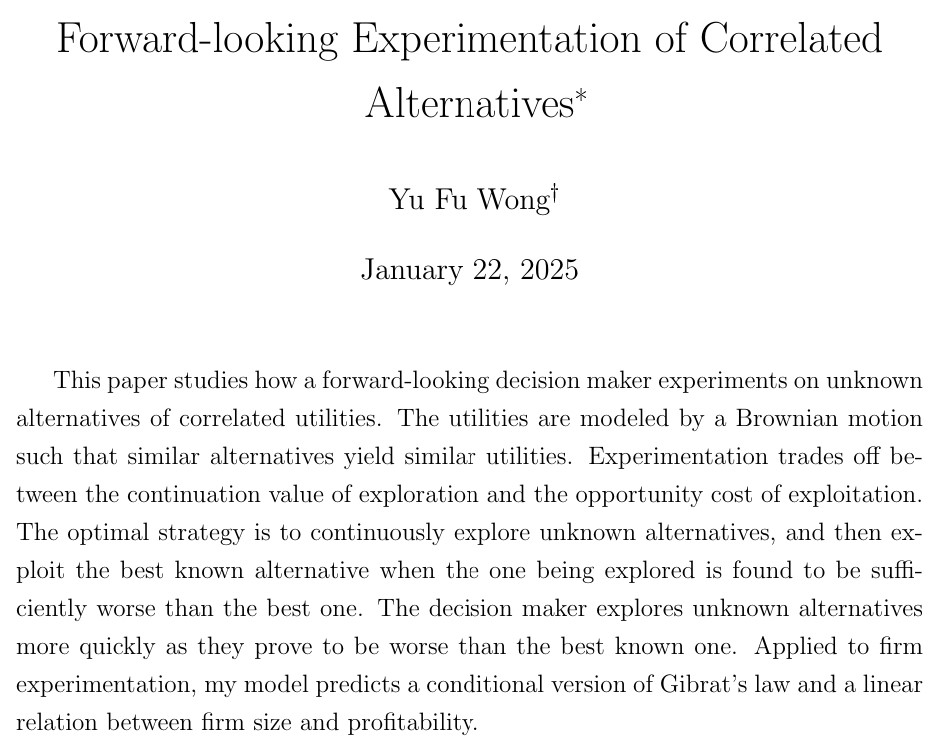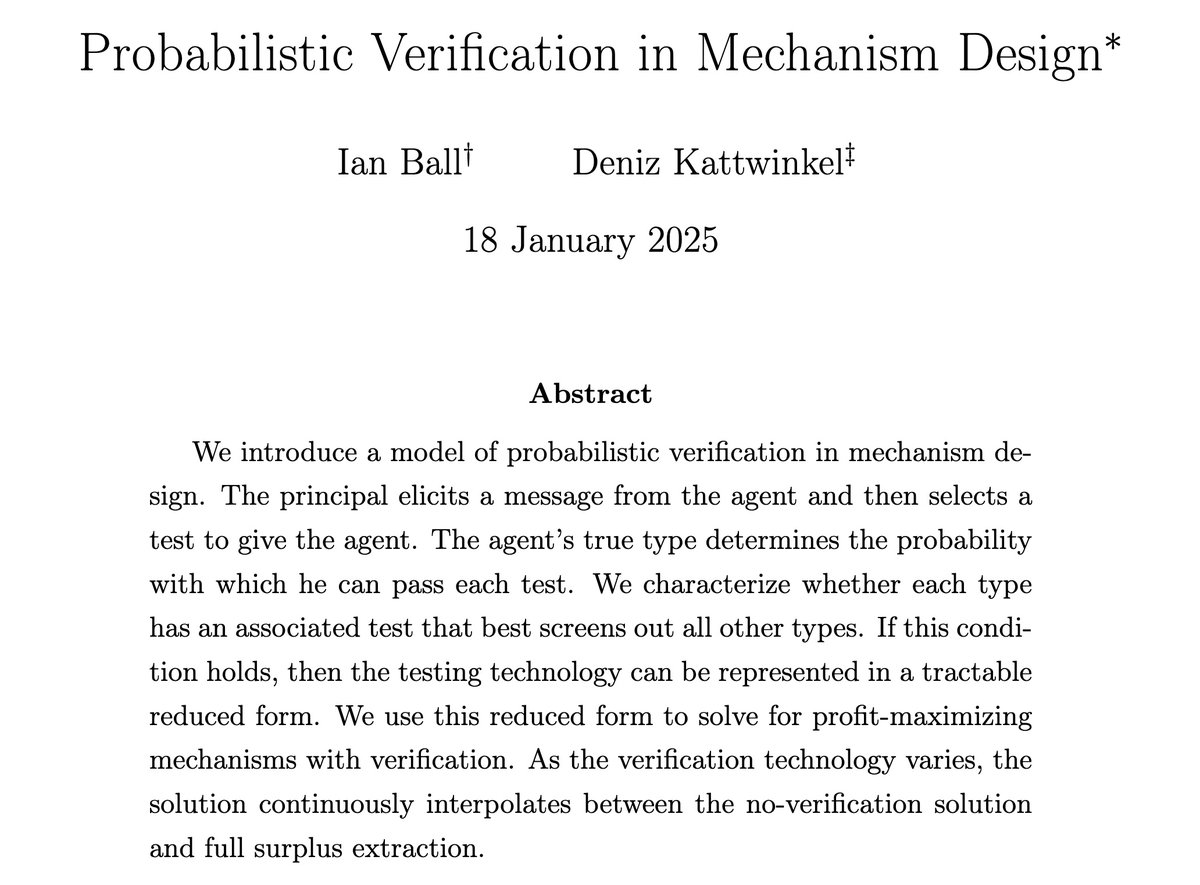
TheoreticalEconomics
@econtheory
Theoretical Economics, a journal of the Econometric Society, publishes research in all areas of economic theory. All content is freely available.
ID: 246072954
http://econtheory.org 02-02-2011 02:17:55
942 Tweet
7,7K Takipçi
3 Takip Edilen






Extending the 2-country tax competition framework with cross-border shopping to 3 countries and a general spatial population distribution, the population distribution within countries matters for the order of tax rates in equilibrium. David R. Agrawal econtheory.org/ojs/index.php/…
































